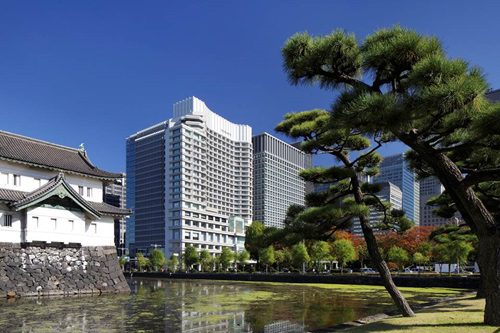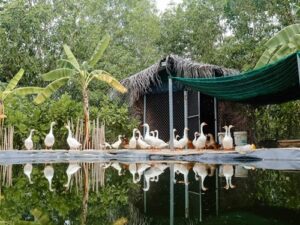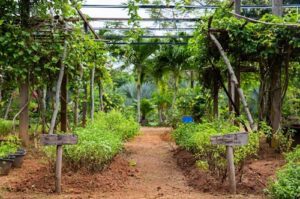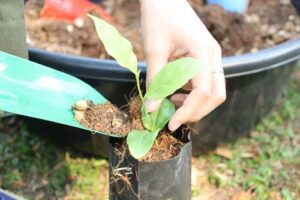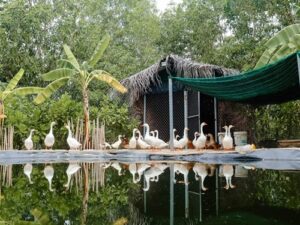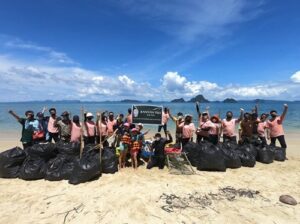 The hospitality industry across Asia is undergoing a revolutionary green transformation. It is challenging the status quo and redefining luxury through eco-conscious practices. From bustling cities to serene coastal regions, Asian hotels are leading the charge in environmental stewardship, proving that high-end luxury and sustainability coexist.
The hospitality industry across Asia is undergoing a revolutionary green transformation. It is challenging the status quo and redefining luxury through eco-conscious practices. From bustling cities to serene coastal regions, Asian hotels are leading the charge in environmental stewardship, proving that high-end luxury and sustainability coexist.
Redefining Luxury with Sustainability
At the forefront of this ecological revolution is Meliá Hotels International, recognized globally for its commitment to sustainability. The hotel giant’s extensive portfolio across Southeast Asia exemplifies its green ethos. For instance, Meliá Ho Tram Beach Resort’s innovative Carbon Offset Program allows guests to neutralize their travel emissions through strategic tree planting initiatives, transforming carbon footprints into forest pathways.
Properties like Meliá Vinpearl Phu Quoc and INNSiDE by Meliá Yogyakarta are turning food scraps into fertile soil, while Sol by Meliá Benoa Bali and Gran Meliá Jakarta spearhead programs that repurpose surplus food to combat food inequity. Further embracing modern technology, several Meliá properties have eliminated paper waste by adopting digital menus and information accessible via QR codes, marking a significant step towards paperless operations.
Tokyo’s Eco-Palace Pioneers Food Waste Solutions
In Tokyo, the Forbes Five-Star rated Palace Hotel Tokyo has been integrating sustainability into its operations long before it became a trend. Their Eco-Palace project, initiated in 1992, converts kitchen refuse into compost, which supports local agriculture—a full-circle sustainable model that benefits the environment and enhances the hotel’s culinary offerings with fresh, locally sourced ingredients.
Central Vietnam’s Commitment to Eco-Integrity
Laguna Lang Co in Vietnam exemplifies sustainability in action. This sprawling resort complex, which includes the renowned Laguna Golf Lang Co, has earned EarthCheck Gold Certification for its environmental efforts. These include banning single-use plastics and promoting a plant-rich diet by introducing meat-free days and expanding vegetarian options at its dining facilities.
Phuket’s Sustainable Culinary Adventure
On the island of Phuket, Trisara Resort is not just a luxury destination but a beacon of sustainability. The resort’s commitment is showcased at its Michelin-starred restaurant, PRU, which stands for Plant, Raise, Understand. The restaurant and Jampa emphasise zero-waste and local sourcing, supporting the environment and the local economy.
Chiang Mai’s Forest Rejuvenation Initiative
Further north in Thailand, Meliá Chiang Mai’s staff are hands-on in their approach to conservation. They have regenerated over seven acres of forest and planted over 4,350 trees. This initiative is part of a broader “Meliá Go Green” program, which extends into 2024 with ambitious plans for further ecological restoration.
The Anam Cam Ranh’s Edible Landscape
In Vietnam, The Anam Cam Ranh’s dedication to sustainability is palpable through its 8500 sqm farm, which provides fresh produce for its restaurants and serves as an educational resource for guests, promoting awareness of sustainable agricultural practices.
Alma’s Solar Power Surge
Alma Resort’s introduction of a vast solar panel installation is set to revolutionize energy consumption patterns within the industry. Covering 23,290 square meters, these panels will significantly reduce the resort’s carbon footprint, reaffirming Alma’s commitment to sustainable operation.
Bangkok’s Mangrove Conservation Effort
INNSiDE by Meliá Bangkok Sukhumvit’s GREENSiDE project demonstrates an urban commitment to environmental conservation, with staff actively participating in mangrove tree planting, showcasing a model for corporate environmental responsibility.
Community Engagement in Koh Samui
Banyan Tree Samui invites guests to enjoy its luxury amenities and participate in environmental preservation efforts. Its annual beach and reef cleanup events foster a community spirit and raise awareness about marine conservation challenges.
These examples across Asia highlight luxury hotels’ innovative approaches to incorporating sustainability into their business models and reflect a broader commitment to the planet that transcends traditional hospitality practices. As these hotels continue to innovate and inspire, they pave the way for a more sustainable future in the global hospitality industry.
Written by: Yves Thomas

